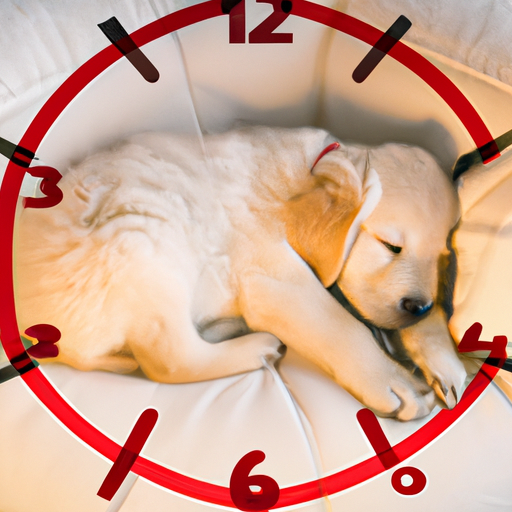As a caregiver, you’re likely taking on the role of a surrogate parent to your new four-legged family member – your adorable puppy. One of the key aspects of this role is understanding and managing your puppy’s sleep patterns. In this guide, we’ll answer one of the most common questions new pet parents have: “how long do puppy naps last?”
1. Understanding Puppy Sleep
First, it’s important to understand that puppies, much like human babies, sleep a lot. Puppies can sleep anywhere from 18 to 20 hours a day during their initial months. This is because their bodies are growing and developing at an exponential rate, and sleep is crucial for this development.
Puppy Sleep Cycles
Puppies typically follow a sleep, play, eat cycle throughout the day. They often fall asleep immediately after a play session or a meal. These naps can last anywhere from 30 minutes to two hours. However, the duration can vary based on:
- Age of the puppy
- The breed
- The puppy’s activity level
2. Factors Affecting Puppy Nap Duration
There are various factors that can influence the length of your puppy’s nap. Let’s delve into the details:
Age and Breed
Starting with age, younger puppies will sleep for longer periods. As they age, the number of naps decreases, but the length of each nap increases. The breed of the puppy also plays a role. Larger breeds tend to sleep more than smaller ones.
| Age/Breed | Average Nap Duration |
|---|---|
| Newborn to 4 weeks | 20-22 hours a day |
| 4 weeks to 12 weeks | 18-20 hours a day |
| 3 months to 6 months | 16-18 hours a day |
| 6 months and above | 12-14 hours a day |
Activity Level
Just like human babies, puppies expend a lot of energy exploring their world. A puppy that has been more active will likely require longer or more frequent naps.
3. Creating a Good Sleep Environment for Your Puppy
You can help your puppy get the best possible nap by creating a quiet and comfortable environment.
- Choosing the Right Bed: Choose a bed that is adequately sized for your puppy’s breed and age. It should be soft, comfortable, and warm.
- Keeping the Environment Quiet: Try to minimize the noise level in the area where your puppy sleeps.
- Maintaining a Regular Schedule: Puppies thrive on routine. Having a set schedule for meals, playtime, and naps can help regulate your puppy’s sleep patterns.
4. When to Wake a Sleeping Puppy
You may have heard the saying, “let sleeping dogs lie.” This applies to puppies too. Unless it’s time for a meal or a scheduled activity, it’s best to let your puppy sleep. Waking a puppy prematurely can make them grumpy or over-tired, which can lead to behavioral issues.
5. Understanding Unusual Sleep Patterns
If your puppy is sleeping excessively or not enough, it could be a sign of an underlying issue such as illness or stress. It’s always best to consult with a vet if you notice any sudden changes in your puppy’s sleep patterns.
Frequently Asked Questions
Q: How can I help my puppy sleep through the night?
A: Try to establish a bedtime routine that includes a final bathroom break, and make the environment as calm and quiet as possible.
Q: Can I train my puppy to follow a sleep schedule?
A: Yes, puppies can be trained to follow a sleep schedule. However, flexibility is important as puppies’ needs can change rapidly as they grow.
Q: My puppy seems to sleep all the time. Is this normal?
A: While puppies do sleep a lot, excessive sleep could signify a health problem. If you’re concerned, it’s best to consult with a vet.
Q: How can I tell if my puppy is getting enough sleep?
A: A well-rested puppy will be energetic and playful when awake. If your puppy seems lethargic or irritable, they may not be getting enough sleep.
Remember, observing, understanding, and responding to your puppy’s sleep patterns is an integral part of puppy parenting. With the right knowledge and approach, you can ensure that your puppy gets the proper rest they need to grow and thrive.



